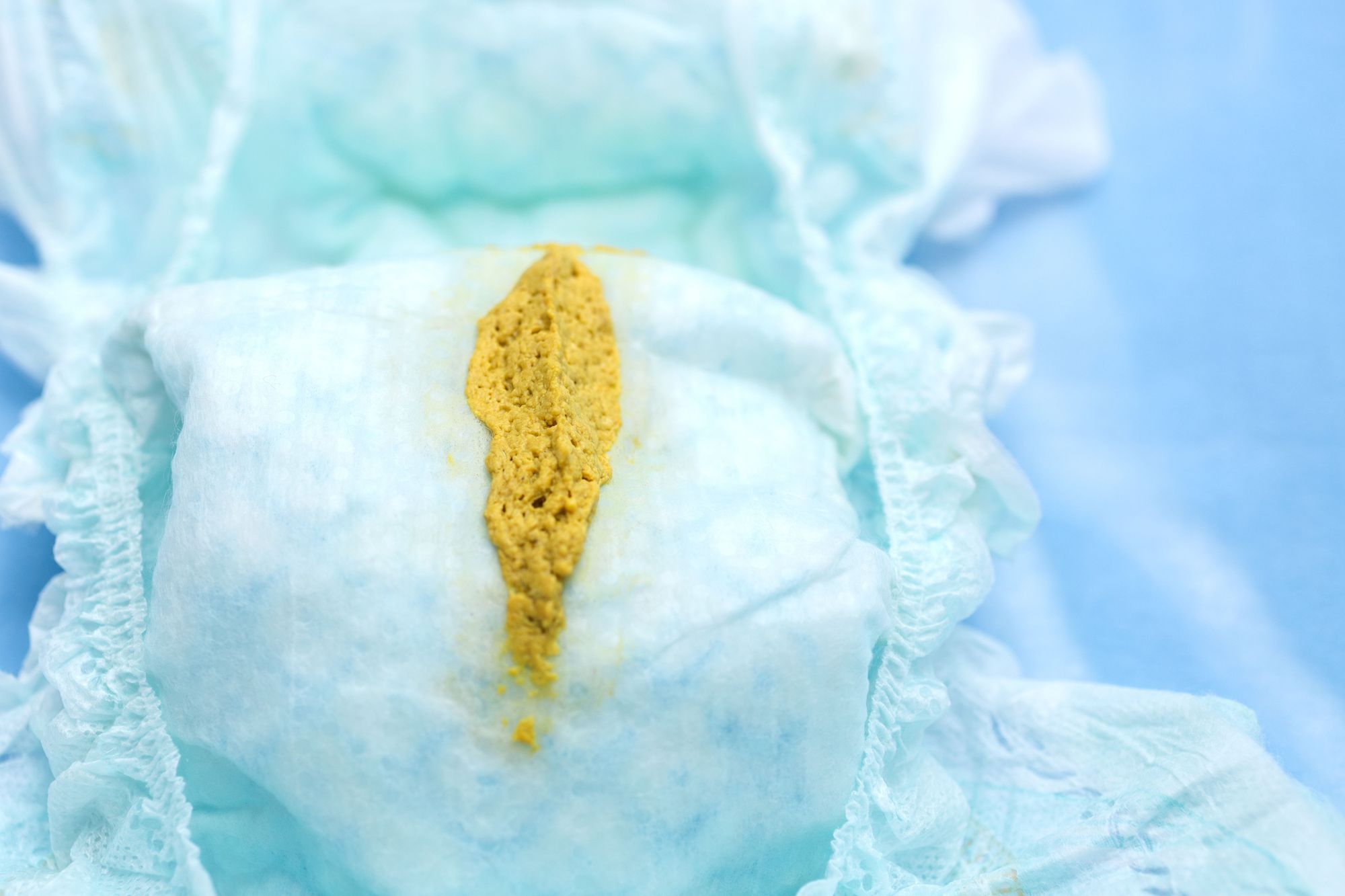White Poop
Concerned about white stools in your breastfed baby? Discover what this uncommon symptom could indicate, from medications to underlying health conditions, and learn when it's time to consult a pediatrician.

White Poop in Breastfed Babies
As a new parent, you're likely to find yourself scrutinizing every aspect of your baby's health, including their stool. While it may seem like an odd focus, the color and consistency of your baby's poop can offer valuable insights into their well-being. One color that can be particularly alarming is white. White stools in breastfed babies are uncommon and could be a sign of an underlying issue that may require medical attention. Here, we'll explore the possible reasons behind white stools, what they could indicate, and the steps you should take if you encounter this in your baby's diaper.
You might have observed pale white stool, or there might be white specs in the stool and even white mucus in the stool. A child with a white stool needs to be examined by a pediatrician.

Normal Breastfed Infant Stools
Breastfed infants typically pass one to ten seedy, yellowish-colored stools every one to eight days.
Understanding what constitutes a 'normal' stool for a breastfed baby can help you better identify when something is amiss. While every baby is different, there are some general guidelines you can follow:
Color
- Yellow: A mustard-yellow color is the most common stool color for exclusively breastfed babies.
- Green: A greenish hue can also be normal, especially if the baby is eating solid foods or you have consumed green-colored foods.
- Brown: As your baby starts to eat more solid foods, you may notice the stool becoming browner.
Texture
- Seedy: Small, seed-like particles are often present in the stool of breastfed babies.
- Creamy: A peanut butter-like consistency is also common.
- Loose: Breastfed babies often have looser stools compared to formula-fed babies, but they shouldn't be watery.
Frequency
- Newborns: In the first few weeks, expect multiple stools per day, sometimes after every feeding.
- Older Infants: As babies grow, they may pass stool less frequently—sometimes once a day or once every week.
Remember, every baby is unique. Factors like age, diet, and overall health can influence the above factors.

What Can White Stools Indicate?
- Oral medications may sometimes cause white stools. Antibiotics for treating ear infections and other illnesses in your baby may be other culprits. Antacids used to treat reflux in your baby may also lead to white spots in the feces.
- When there is a lack of iron, it may cause white stool anemia.
- White poop in babies sometimes indicates a lack of bile. A cyst, tumor, or inflammation in the bile ducts may inhibit bile flow, hence the chalky white stool. Some congenital disorders of the bile duct also may be the cause of white in the stool. A narrowing or stricture of the duct may be present, limiting the fluid from reaching the small intestines.
- Other medical reasons that may cause white stool are the scarring of bile ducts, liver infections, and autoimmune destruction of the bile ducts and gallstones.
Other Symptoms That May Accompany White Poop
Jaundice, dark urine, and itching skin are additional symptoms that may be related to white stools in babies. Remember that your own dietary intake while breastfeeding is not the cause of a white-colored stool.
Should You Breastfeed?
Breast milk is the best food for a baby, and breast milk will help heal whatever the problem may be unless the issue is something like true lactose intolerance or Galactosemia, but this is very rare. There are very few instances that require a mother to stop breastfeeding.
Breast milk, in normal circumstances, will provide immune and gut protection.
Learn more about the benefits of breastfeeding here.

Tushbaby Hip Carrier
With its ergonomic design and comfortable waistband, Tushbaby provides optimal support for both you and your baby, allowing for bonding on the go. Say goodbye to shoulder and back pain from traditional carriers, as Tushbaby evenly distributes your baby's weight, relieving strain and promoting better posture.
Conclusion
While these are potential answers to why this occurs, there are other possibilities, ranging from the very serious to the very minor.
Consult your pediatrician and, if possible, take a diaper sample of stool with you for your doctor to see. Do not ignore white poop. Get the opinion of your doctor immediately.
